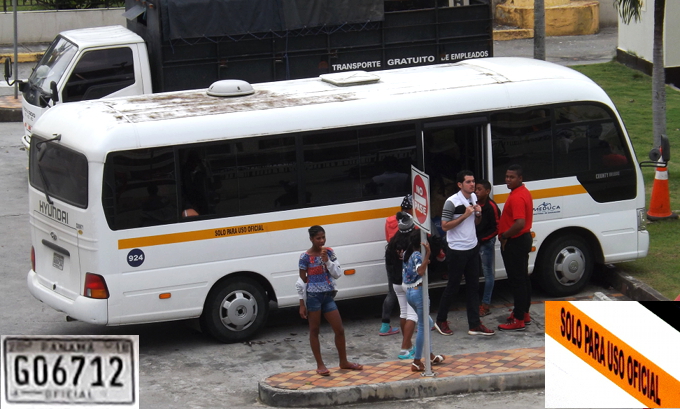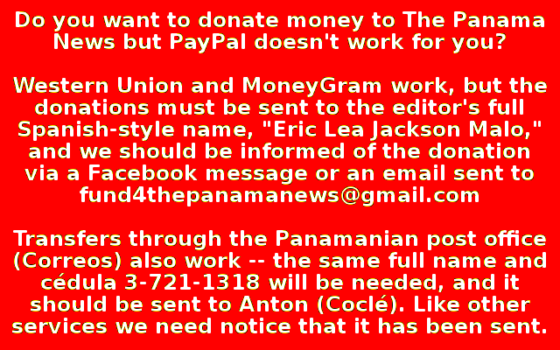
This season’s vote buying offers
by Eric Jackson
It’s actually against Panamanian law to buy or sell votes, period. But the Electoral Tribunal has whittled that down to only take the purchase of votes with public funds to be a crime. Then the Electoral Prosecutor, a Ricardo Martinelli appointee, sneeringly refuses to investigate the use of public resources for this purpose. In the runup to the 2014 election, government vehicles loaded with potential voters visited the beaches of San Carlos in a steady stream and campaigners used the Las Uvas de San Carlos corregiduria for a storage and assembly point for Cambio Democratico campaigners to go out through the neighborhood distributing bags of groceries to selected voters. This was witnessed and reported to electoral authorities by this reporter. There was never any pretense of an investigation.
There is a general election next May and that stuff is again in season.
Rule of thumb — only those holding office or parties in power at one of the branches of the government have command of public resources for such things. There may be some challengers favored by some incumbents involved, but these are offenses committed by incumbents, usually on their own behalf.
The most notorious offender, for many years, has been legislator and El Chorrillo representante Sergio “Chello” Gálvez, the self-proclaimed “Sexual Buffalo.” In campaign years past he has used public funds to buy picnic hams to distribute around Christmas time. This year, La Prensa reports, he has tapped into $550,000 from the legislature’s budget to buy $100 “gift cards” for 5,500 potential swing voters.
Is it illegal? Not where there is no rule of law.
Is it unconstitutional? If you get into the history of the 1972 constitution, which with a few patches is still in effect here, it’s not against the spirit in which that deal was negotiated. In 1968 the military staged a coup, but then wanted to negotiate a canal treaty with the United States. To accomplish that aim, it was advisable to have at least a fig leaf of democracy to show the gringos. Thus General Torrijos convened all the surviving representantes elected in 1968 and not in exile abroad to a convention, in which a deal was offered. The Guardia Nacional would remain in power. There would be local governments with elected officials, and an elected rubber stamp legislature, and theoretically independent courts to approve whatever the military decided. Those civilian politicians who went along and got elected to public offices would be allotted funds to spend on their constituents — often themselves — as “circuit funds” or otherwise. Those who opposed military rule got little or nothing, enthusiastic supporters of government by people in uniforms got a lot (relative to the small universe of what Panama’s market would bear, of course). So in a sense this sort of politics is exactly what the framers of Panama’s constitution had in mind.
The big question this time is whether this sort of politics buys its practitioners more time in office, or whether it stokes public anger and leads to a general rout of incumbents.
~ ~ ~
These announcements are interactive. Click on them for more information.













